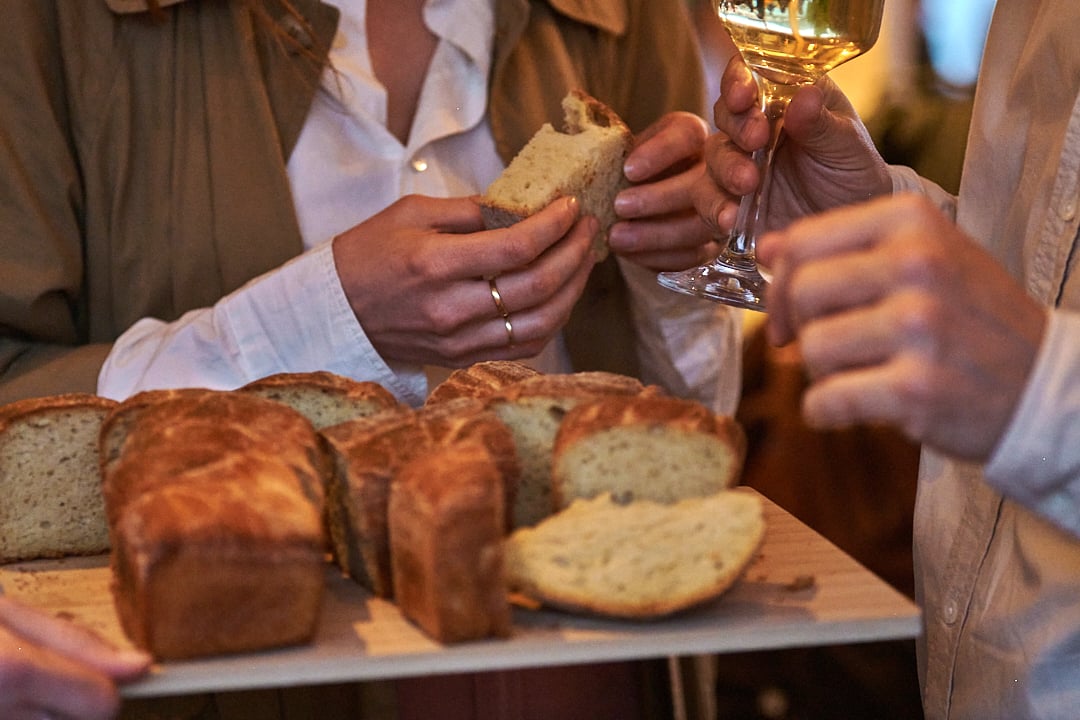In a folk tale it is stated that, the Sweetest bread, it’s what you sow, you want, you threshinggrind, kneading and baking. Thus, a king who was suffering from anorexia managed, through hard work, to overcome it and taste a delicious loaf.
Bread stories that Lemnos’ intangible heritage includes the program implemented on the island by Places & Traces AMKE and the partners Fragment & Sanke, funded by EEA GRANTS (European Economic Area 2014-2021).
According to Places & Traces Coordinator Angeliki Tseliou, the project “Loaf Stories. The bread that brings us together ”(Loaf Stories. Identity and Belonging Through Bread Culture) is an inclusive cultural education program that focuses on intangible cultural heritage and the exchange of knowledge between Greece (Lemnos) and Norway (OSLO). Drawing inspiration from bread culture and its importance to the community and taking advantage of the experience of partners in education, intangible heritage and sustainability, the work emphasizes ancient and traditional seeds, the importance of making and consuming bread and consumption of bread, as well as consumption of bread and consumption.
Specifically, last Friday and Saturday, a two -day event was organized, with a central theme and speeches of scientists and agents on bread as a sustainability factor and the integration of intangible heritage into educational practice and daily life. At the same time, all the participants sat on a table and distributed bread from local flour and Limnio wine, exchanging information on methods and traditions related to bread preparation and consuming in Lemnos.
“We discussed and tasted bread from traditional, flour that is the Lemnos flour and the blackness,” dipped “bits in local oil and pinched olives and drank Limnio wine,” Ms. Tseliou describes her.
In this regard, today and tomorrow, under the program, a workshop for adolescents attending schools in Lemnos, including students with disabilities, is being organized. In a series of educational activities that emphasize knowledge exchange and experiential learning, students and students of GEL and EPAL Moudros and EYEEK Repanidi will have the opportunity to learn and reflect on modern crops and land care, local and local crops, and local crops. The project includes the creation of accessible educational material for students with learning disabilities.
